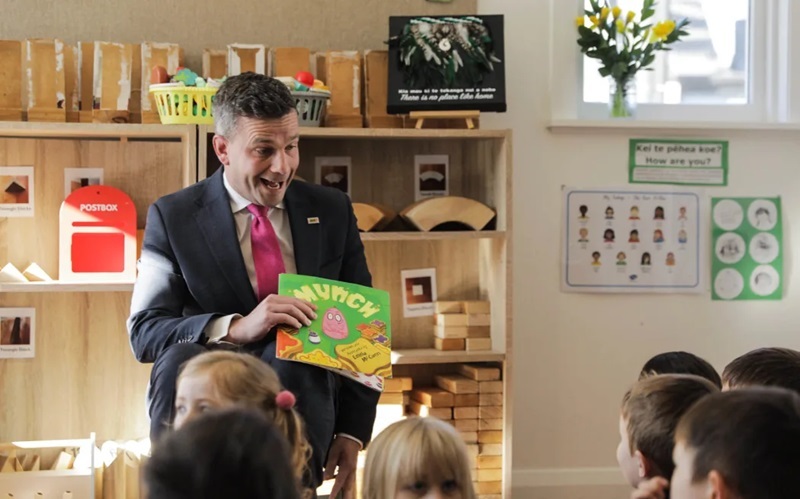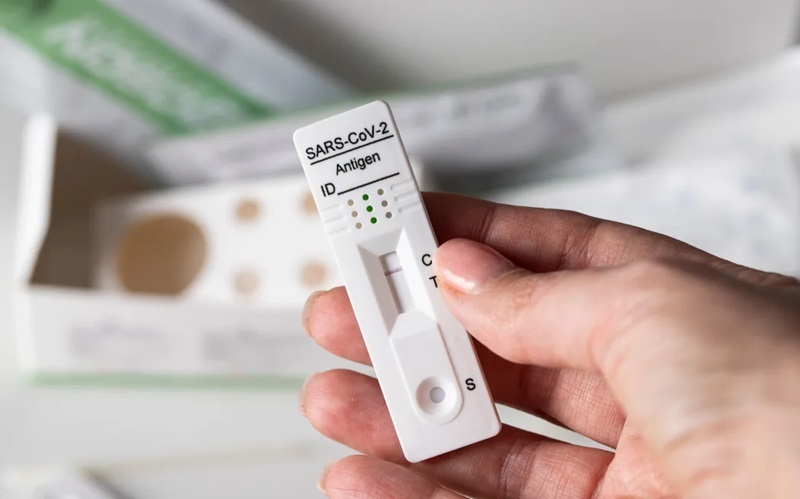Winter illness puts dent in school attendance as officials mull social media campaign
RNZ
09 June 2024, 9:57 PM
 Photo: RNZ/ Nick Monro
Photo: RNZ/ Nick MonroWinter illness is putting a dent in daily school attendance - but so are long weekends.
The percentage of children in class each day has dropped from a high of 89 percent at the start of the school term in late April to 82-84 percent for most days at the end of May.
However, attendance fell to just 73 percent on the Friday before the King's Birthday long weekend at schools that were not closed for teacher-only days.
In Hawke's Bay Tairāwhiti it dropped to 62 percent and in Canterbury it was 65 percent.
The Ministry of Education has told schools to aim for 94 percent daily attendance, as that should ensure 80 percent of their students were in class more than 90 percent of the time - the benchmark for regular attendance.
The daily attendance rates in the final week before the long weekend were better than those for the same week in term 2, 2022 (when attendance ranged from a mid-week high of just over 82 percent to a Friday low of nearly 73 percent) but worse than 2023 (when attendance ranged from 81-86 percent).
Listen: Winter illness impacts school attendance
Meanwhile, a ministry briefing paper to Associate Education Minister David Seymour said just 15 percent of students, fewer than 130,000, met the government benchmark in all four terms of 2023.
It said 445,000 students, 53 percent, missed more than 10 percent of school over the course of the year - and 14,000 students, two percent, missed more than three weeks of school every term.
Seymour said Fridays consistently had lower attendance rates, especially before public holidays.
"However, this is definitely not something that we want normalised. Winter illness is also playing a part in term 2 attendance levels," he said.
"The daily dashboard is showing us that encouraging students to go to school every day, and particularly towards the end of the week, will contribute to achieving this target - but more importantly, it will contribute to helping them in their futures."
Seymour said media reporting on daily attendance data would bring more public attention to the issue.

David Seymour says Fridays consistently have lower attendance rates than other days of the week. Photo: RNZ / Samuel Rillstone
Influencers and social media
"Go five for five" and "How sick is too sick for school" could be key messages in a PR campaign to drive up school attendance.
The slogans were included in a ministry briefing to Seymour in early May.
The paper said a campaign would cost about $1 million and would seek to persuade families and students of the importance of regular attendance.
It said a $1m national campaign ran for five weeks in 2022 and raised awareness, but did not necessarily change people's attitudes.
"An impact assessment of the 2022 campaign found that even after that campaign opinions about the impact of not attending school varied considerably. Only around half of parents considered low attendance to be a 'serious problem' and only around a third considered it a problem in their community," the report said.
However, it also provided evidence that local campaigns, which cost about $400,000 over two years, could have measurable success.
"One of these campaigns focused on an individual primary school and over a year (from Term 1 2022 to Term 1 2023) their regular attendance rate increased from 28.8 percent to 59.5 percent," the report said.
It said influencers would be used in the campaign and could reach large numbers of people.
"For one influencer we worked with on previous attendance campaigns, the video cost $7000 and reached one million people on TikTok alone (and this was posted on Facebook and Instagram)," the paper said.

Officials are eyeing a social media campaign to persuade students and their families of the importance of regular attendance. Photo: JONATHAN RAA
School - the 'best party in town'?
Cobden School in Greymouth has used Ministry of Education funding to run its own social media campaign encouraging families to send their children to school every day.
Principal Noula Markham told RNZ the school still had work to do, but the campaign helped.
"What we have had is a big shift with the critical non-attendance. That has definitely lowered. So our truancy rate is very, very low and so the shift is definitely heading in that positive direction," she said.
She said the campaign ran over two school terms and featured new animations each week with key messages about attendance.
"Either a message around the benefits of attending of school, we had some messages around what parents could do to help them get their children to school like a regular bedtime, being prepared the night before and then we had a lot of messages saying 'school is not the same without you'."
Markham said the school was experiencing a wave of winter illness, but it did not have a Friday slump in attendance.
Asked why, Markham said: "Try and keep the curriculum alive. School should be the best party in town. Getting the children's voice in what activities we do and also having a great relationship with our school community.
"You've just got to keep the learning alive. You've got to keep those kids wanting to come to school. Obviously we have our lunch in schools as well which is a huge plus. So anything we can do to make kids want to come to school is going to boost achievement and obviously attendance rates."
Darfield High School principal Andy England told RNZ the school's daily attendance was generally around 90 percent but it was not immune to the Friday dip.

Illnesses like Covid are just one reason for students missing school. Photo: 123rf.com
"We would have families who might go away to the bach or go hunting, and that may sound flippant and it's certainly something we have to dig into in terms of the importance of turning up to school, but for some families that is the key thing that they value," he said.
"Forty-seven percent of respondents we had to a recent survey said school's important but they think time with family's important."
England said Monday's attendance was also lower than later in the week, especially for senior students, and that might be due to their weekend activities.
He said the school was studying its figures closely and had noted that students going off-site to trades academy classes on Fridays had attendance close to 100 percent.
England said changing families' attitudes would be difficult.
"We went through Covid and then went through a period of teacher strikes last year, both of those things are quoted by parents as indicating that it's maybe not quite as important to have their kids coming into school.
"I think some families have learnt that they quite enjoy having their own kids around home and actually in some cases the learning can be quite effective from home. So the issues are quite complex and I don't believe that just telling kids to get back to school is going to work."
England said the school was still trying to understand its community's attitude to attendance and truancy.
He said reminding parents of the effect of missed classes on their children's education was likely to be an effective approach.
"Letting them understand the fact that one day off per week is a year over 10 years, those kinds of statistics, and highlighting the impact of disengagement so when a child misses a lesson and it's part of a sequence, and they come back and they sit in the class and they don't really understand what their classmates are doing," he said.




